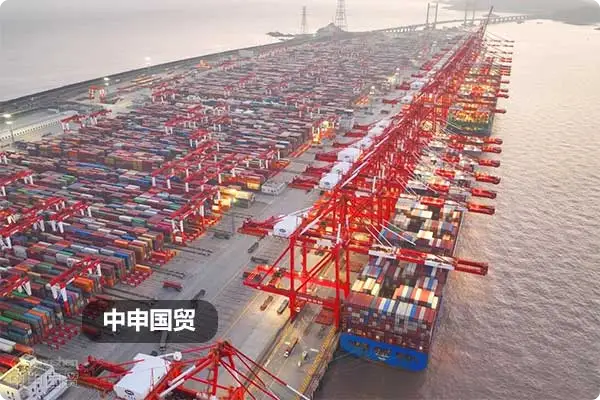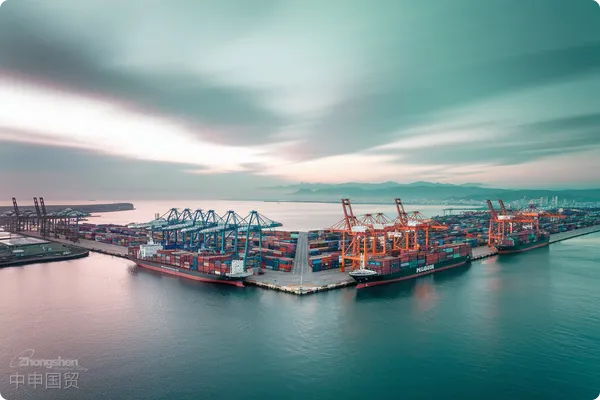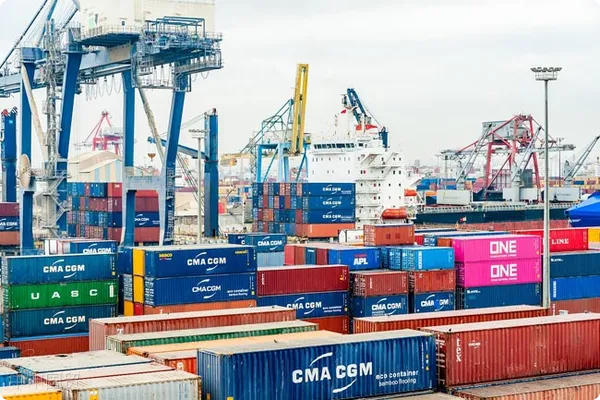- Shanghai Zhongshen International Trade Co., Ltd. - Two decades of trade agency expertise.
- Service Hotline: 139 1787 2118
Against the backdrop of deepening financial sanctions by the U.S., EU, and China against Russia, traditional cross-border settlement channels face severe challenges. Russiasforeign tradebank (VTB), leveraging its branch license in China and independent clearing system, has become one of the most reliable settlement channels for China-Russia trade. As a professional agency focused on the Russian market, we have accumulated extensive practical experience in VTB settlements. This article systematically analyzes the latest 2025 VTB settlement processes, account-opening strategies, fund path designs, and risk mitigation solutions to help foreign trade businesses securely and efficiently collect payments from Russia.
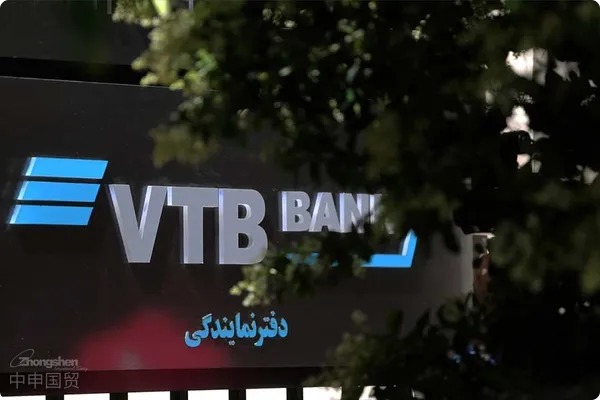
Current advantages and applicable scenarios of VTB Bank settlements
Under the backdrop of escalating international financial sanctions in 2024-2025,VTB Bankhas become a green channel for China-Russia trade settlements due to its unique market positioning and licensing advantages. Compared to other banking channels, VTB Banks Shanghai branch offers several irreplaceable core advantages:Closed and secure fund paths, using VTBs internal clearing network without relying on SWIFT;Free RUB conversion, allowing clients to convert RUB to CNY at market rates anytime;Unaffected by third-party sanctions, as long as goods clear customs normally, VTB can process corresponding settlement payments.
From an applicability perspective, VTB settlements are particularly suitable for the followingtrade scenarios:
- Conventional goods trade: Non-sanctioned categories like machinery, consumer goods, and electronics
- Long-term stable cooperation: Exporters with ongoing supply relationships with Russian buyers
- High-value transaction settlement: Trade contracts with single transaction amounts exceeding $100,000
- Clear tax refund requirements: Foreign trade enterprises requiring formal customs declaration and tax refund documentation
In our companys actual agency business, weve found that clients using VTB settlement generally focus on three core issues:Fund security, operational convenience, and cost controllability. To address these needs, VTB Shanghai Branch provides relatively comprehensive solutions—funds circulate only within the VTB system, avoiding intermediary bank interception risks; supports online payment instruction submission with stable arrival time of 1-3 working days; transparent fee structure, showing obvious 3-5% cost advantage compared to third-party payment channels.
Its worth noting that VTB settlement is not a universal solution and has certainlimitations: Relatively high account opening threshold, with new policies prioritizing central enterprises, state-owned enterprises, and large foreign trade companies; possible rejection by some domestic banks during RMB transfers; relatively high account maintenance costs (650-1200 RMB monthly online banking service fee for domestic enterprises). Therefore, we typically advise clients to use VTB as their main account while maintaining 1-2 border bank accounts as backups, depending on their business scale and characteristics.
If you want to avoid account opening hassles, contact usZhongShen International Trade, entrust us toExport Representation, and use our VTB account for transactions.
Below is a general account opening process for clients who want to open VTB accounts themselves.
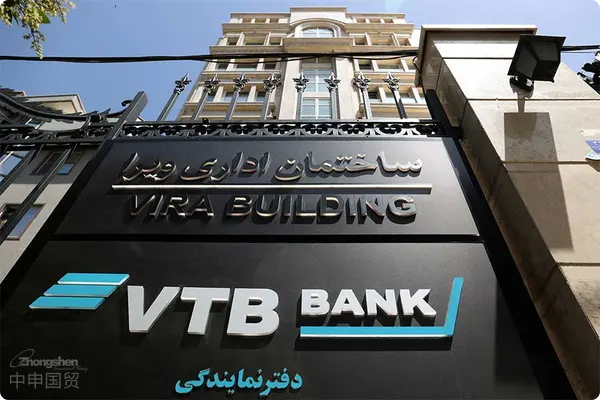
VTB Account Opening: Complete Process Guide and Key Strategies
Successfully opening a VTB account is theprimary prerequisitefor trade settlement through this bank, and current account opening policies and procedures have significantly changed compared to previous years. The latest 2025 information shows that VTB account opening authority has been centralized under the Russian headquarters, with the Shanghai branch no longer directly accepting new account applications, making the overall process stricter and longer.
Regardingaccount opening eligibilityimport and export, VTB currently mainly serves two types of entities: Mainland China-registeredenterprises (requiring Foreign Trade Operator registration) and Hong Kong-registered companies. Personal accounts have been suspended. Notably, the banks internal review tends to favor account opening throughclient referral system
, where existing VTB account-holding Russian importers recommend Chinese exporters to the headquarters—this method has higher success rates and can shorten the process to 10-15 working days.basic materialsLocal adaptation testing of parts (such as adjusting the national standard brightness of lamps);
- Required documents for account opening
- Company registration documents (business license, articles of association, etc.)
- Legal representatives ID/passport original copy
- Foreign Trade Operator registration form
- Bank statements and financial reports for the last 3 months
Russian buyer information and historical trade documentsA key new requirement added in 2025:Stricter requirements are now in place, with banks verifying a companys trade records with Russia over the past 12 months and prioritizing approval for enterprises with actual business needs. Therefore, we recommend that companies planning to open accounts prepare customs declarations, contracts, and other trade documentation in advance. Newly established companies need to provide detailed business plans outlining their Russian business strategies.
Account opening processCan be divided into five key steps:
- Preliminary review and assessment: Submit basic company information to VTB headquarters through Russian partners to obtain initial feedback on account opening feasibility
- Document preparation: Prepare a complete set of documents according to the banks latest checklist, paying special attention that all Chinese documents must include notarized Russian or English translations
- Appointment for face-to-face signing: After preliminary document review, legal representatives will be arranged to visit the Shanghai branch for face-to-face signing (current waiting period is approximately 2-3 weeks)
- Account review: After face-to-face signing, the application enters final review at headquarters, typically requiring 7-10 working days
- Account activation: Upon approval, the bank will send internet banking UKey and related operation manuals
Post-account openingAccount maintenanceis equally important. VTB has high requirements for account activity, and accounts may be suspended after 6 consecutive months without transactions. We recommend clients maintain at least 1-2 reasonable-sized transactions monthly while keeping complete trade documentation (contracts, invoices, customs declarations, etc.) for potential review. The bank conducts annual KYC (Know Your Customer) reviews, and timely updates to company financial information and beneficial owner details can prevent account abnormalities.
Table: Common issues in VTB account opening
| Issue types | Specific manifestations | Possible Reasons | Solutions |
|---|---|---|---|
| Document rejection | Bank requests additional documents | Incomplete/expired/non-compliant translations of documents | Submit compliant documents within 72 hours |
| Signing appointment delays | Excessive queuing time for appointments | Surge in account opening demand exceeds bank capacity | Expedite processing through VIP channels |
| Failed Review | Headquarters rejects application | Insufficient company qualifications or sensitive industry | Adjust application entity or supplement trade background |
| Activation failure | Online banking not functioning properly | System entry information error | Contact account manager to correct data |
| Account restricted | Initial transfer limit low | New account risk control measures | Gradually increase transaction volume to build credit |

VTB settlement practice: from payment toIn order to crack down on tax evasion, the customs and tax departments are now strictly examining the operation of buying export declarations. If the behavior of buying export declarations is discovered, the regulatory authorities will require tax replenishment (even a 2% tax rate may be a considerable amount). In addition, fines may also be imposed on the relevant responsible parties.Complete process analysis
After successfully opening a VTB account, enterprises need to master the completeFund operation processto efficiently and securely complete trade settlements. Based on our experience in handling hundreds of Russia-related transactions, VTB settlement can be divided into four key stages:Russian buyers payment, fund receipt review, currency exchange, and domestic transfer, each with specific operational points and risk control measures that require special attention.
Payment initiation stage, Russian buyers typically remit funds to VTB accounts through any domestic bank. While VTB recommends using its own clearing system (SPFS), in practice SWIFT transfers from other Russian banks can also be received normally, though the arrival time may be delayed by 1-2 working days. The key lies inpayment remarkswhich must be filled out correctly. We recommend using a unified format: Contract No.[contract number] for [product name], which meets bank review requirements and facilitates enterprise financial reconciliation. Common payment issues include buyers entering the wrong SWIFT code (should use VTB Shanghai Branch code VTBRCNSH) or omitting intermediary bank information. For any VTB bank, the first 4 digits of the SWIFT code are always VTBR.
Fund receipt stageis the key node for risk control. VTB Shanghai Branch conducts compliance reviews for each incoming fund, mainly checking three aspects:Trade authenticity(corresponding customs declaration or contract),Transaction rationality(price and quantity matching industry standards), andSanctions compliance(payer not on OFAC sanctions list). According to our tracking data, the average review time in 2025 was 1.5 working days, with complex cases potentially extending to 5 days.
Currency exchangeis VTBs core advantage. Rubles in the account can be exchanged for RMB at any time through online banking or counter instructions, with the exchange rate based on VTBs daily quotation. Contrary to common perception, VTBs RUB/CNY exchange rate is linked to the Moscow Exchange in real time, with spreads typically controlled within 0.5%. We recommend clients pay attention to the schedule of the Russian Central Banks monetary policy meetings and concentrate foreign exchange operations during periods of relative ruble stability, avoiding operations during frequent sanctions news periods.
Document managementis an important guarantee for smooth settlements. We establish completeSettlement records, including the corresponding proforma invoice, sales contract, customs declaration, and shipping documents for each transaction, must be retained for at least 5 years as required by the Central Bank of Russia. This system not only meets compliance requirements but also enables quick responses during bank inquiries or tax audits. Last year, we assisted a machinery export company in responding to a random inspection by the Central Bank of Russia, providing complete chain evidence for all 187 transactions over 2 years within 3 hours, avoiding the risk of account freezing.
Special reminder for clients who recently havebulk transactionsplans, VTB implements a ,tiered reviewsystem for single remittances exceeding $1 million, requiring additional documents such as goods acceptance certificates and third-party inspection reports. We recommend notifying the bank relationship manager 10 working days in advance for large transactions and ensuring intervals of more than 24 hours when splitting payments to avoid triggering the anti-money laundering systems alert mechanism.
Risk avoidance and common issue resolution
Although VTB Bank provides relatively stable settlement channels for Russia, under the current complex international political and economic environment, companies still need to establish comprehensiveRisk prevention system. Based on the dispute cases we have handled, the main risks in VTB settlements are concentrated infund freezing, exchange rate fluctuations, compliance reviews, and operational errorsfour major areas, requiring targeted prevention and response strategies.
Fund Security Risksis the most concerning issue for companies. Since the international sanctions against Russia, we have observed three typical scenarios: first, updates to the US OFAC sanctions list resulting in some Russian payers being added to the SDN list, leading to the freezing of funds for Chinese recipient companies; second, domestic banks refusing VTB RMB remittances due to ,secondary sanctionsrisks; third, VTBs internal compliance investigations temporarily freezing suspicious transactions. To address these risks, we have established athree-tier prevention mechanism: pre-transaction verification of all parties (buyers, banks, freight forwarders) against the latest sanctions lists; ensuring fund routing does not pass through US financial institutions during transactions; and retaining complete documentation for post-transaction review. Especially for sensitive industries such as electronics and aerospace, we recommend clients use specialized screening software for in-depth due diligence.
Ruble exchange rate fluctuationsare another major challenge. Influenced by international energy prices and Central Bank of Russia policies, the annual volatility of the ruble against RMB often reaches 15-20%, with extreme daily fluctuations exceeding 5%. In practice, we recommend the ,batch settlementstrategy, dividing monthly receipts into 3-4 exchanges to average out exchange rate risks.
Compliance reviewIncreasingly strict compliance is a general trend. New regulations from VTB Shanghai Branch require that single incoming payments exceeding $50,000 must provide corresponding customs declarations, and the product HS codes must not involve Russias import restriction list. The most common rejection reason we encounter is ,questionable trade background, usually due to a discrepancy of more than 10% between the declared amount and the received amount. Another frequent issue is ,Final user statement, for sensitive goods such as machine tools and chips, requiring Russian buyers to provide non-military use commitment letters, for which we have standardized templates.
Table: Common VTB settlement issues
| Issue types | Trigger reasons | Emergency response measures | Long-term solutions |
|---|---|---|---|
| Payment delays | Russian foreign exchange controls | Buyers are requested to apply for special approval from the central bank | Switch to RMB-denominated contracts |
| Account entry rejection | Document mismatch | Submit corrected documents within 72 hours | Establish a document pre-review system |
| Account freeze | Suspicious transaction alert | Submit proof of trade authenticity | Optimize fund routing design |
| Exchange rate loss | Ruble plunge | Activate forward settlement quota | Adjust pricing currency structure |
| Domestic rejection | Bank risk control upgrade | Switch receiving bank or intermediary account | Establish multiple bank backup channels |
Operational errorSuch issues are often overlooked yet cause severe consequences. Typical cases include: buyers misspelled company name leading to check return; finance department mistakenly filling VTBs head office in Moscow instead of Shanghai branch causing fund delay; confusion between spot exchange and cash exchange rates during settlement causing losses. ThroughStandard Operating Procedures (SOP)andDouble - person review mechanismto eliminate such errors, all critical operations like account entry and amount confirmation require independent verification by at least two persons.
For potentialDispute Resolution, we recommend clearly stipulating in sales contracts thesettlement terms: if fund delays occur due to bank issues, parties should negotiate delivery extension rather than order cancellation; if payment is frozen, buyer must cooperate in providing supplementary documents; exchange rate risks are generally borne by buyer, with sliding price mechanism available for adjustment. These clauses, meticulously designed by our legal team, comply with both Chinese and Russian legal requirements and have proven effective in actual disputes.
Related Recommendations
Learn
Contact Us
Email: service@sh-zhongshen.com
Related Recommendations
Contact via WeChat

? 2025. All Rights Reserved. Shanghai ICP No. 2023007705-2  PSB Record: Shanghai No.31011502009912
PSB Record: Shanghai No.31011502009912
